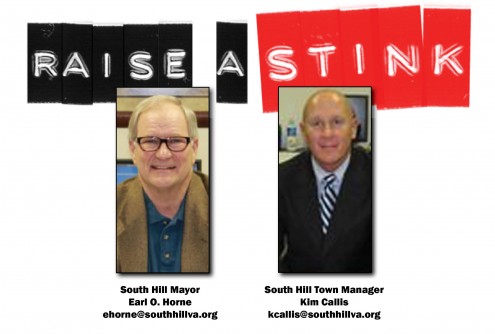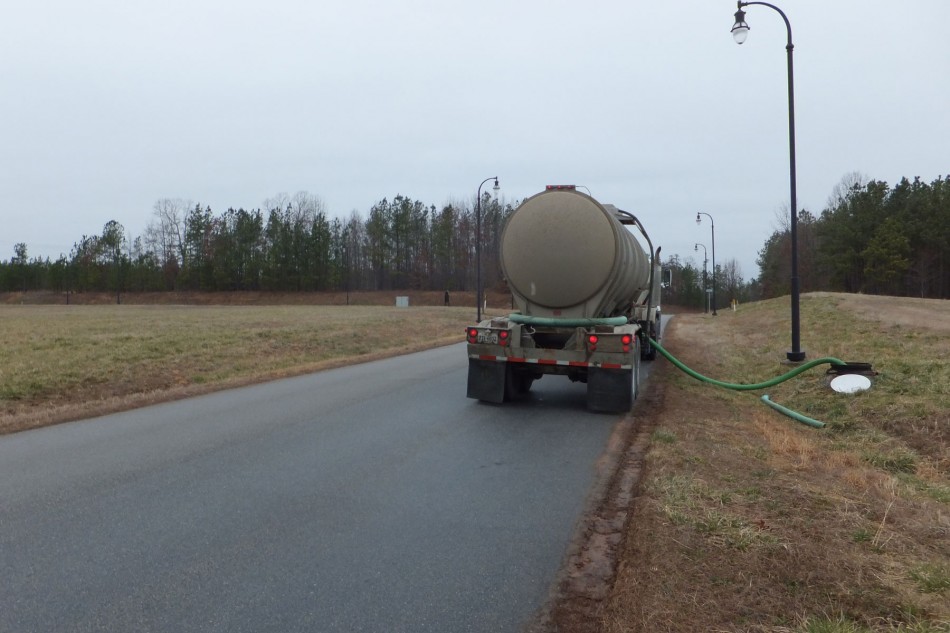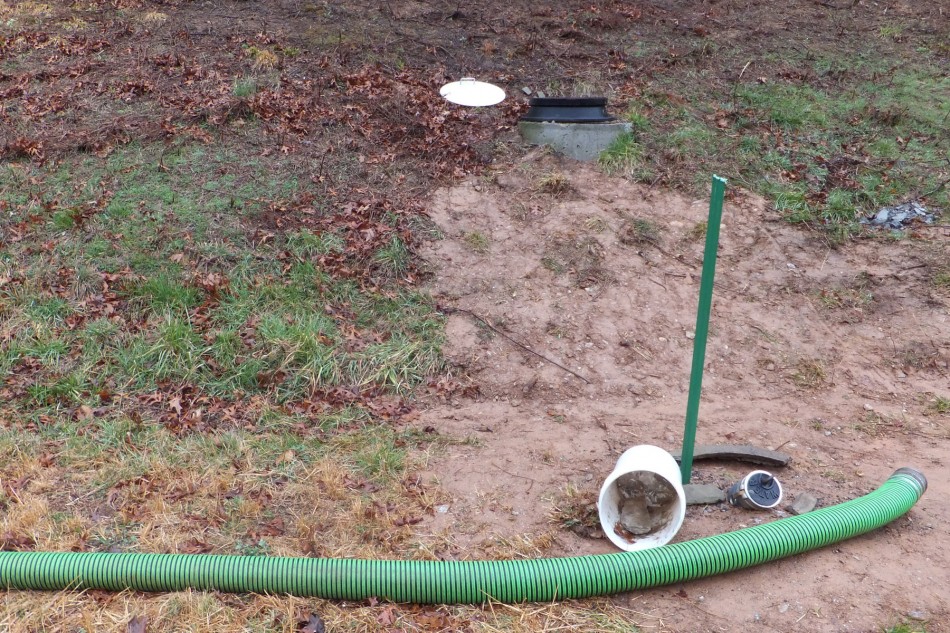Virginia was not under consideration as a potential state to relocate our growing business, but we received an invitation from then Governor, now Senator Mark Warner in 2005. Our business was aggressively courted by officials on the state and local level. As a result, they presented to us a list of generous incentives on both the state and local level in exchange for bringing our company to Virginia, which mostly did not materialize. They went to great lengths to secure our business. One of the officials would call the owner on a daily basis, suggesting that she would even babysit the owner’s children once they relocated to the area to make the move easier.
On paper, and through these conversations, it was felt that this area would be ideal for our company and a mutually agreeable business relationship between a business and the local area.
When we toured the area, the local officials presented to us a very rosy picture of the local infrastructure and amenities offered to businesses. We observed classes utilizing the local learning center for job training. The industrial park developed by the Mecklenburg/Brunswick IDAs was touted to us as ready to build, with redundant fiber optic cables and other utilities already on site to reduce building costs. Once we were well into the process of building the building, we discovered that in order to have basic necessities like phone and electricity, we were going to have to pay a premium. The electric company demanded we pay $30,000 to bring transformers to our facility, citing that many businesses come and go and that they had to “recoup their costs.” In order for us to bring the use of phone lines to our site, the phone company demanded that we pay $20,000, indicating that we were the only tenant in the park and they would not provide service unless we paid the $20,000 fee.
Another big problem was attempting to find skilled or semi-skilled labor in the area. Despite the learning center, and the rampant unemployment, it was almost impossible to find suitable employees for our facility. The learning center turned out to only be a convenient place for people to check email and go on Facebook, as we personally observed. The two instructors there made little effort or attempt to assist us in locating any potential employees to operate our machinery equipment despite our repeated requests.
Some of the local officials expressed hope at the beginning that our company would hire their unemployed relatives, many of whom had been laid off due to textile plant closures in the region. The local official who wanted to baby sit presented a relative of hers as a potential management candidate, but the individual wanted an astronomically high salary when he lacked the proper skills for the position. Once we declined this candidate, and declined other unqualified candidates who came to our door identifying themselves as relatives and relations of other local officials, the animosity from the local officials began to grow.
Eventually, however, with great difficulty and many years of trial and error we staffed our plant, bringing in employees from various states in order to do so.
Once we had completed the arduous process of building the plant, hiring and staffing, we hoped that our fortunes would turn around and our investment in the area would begin to improve. In early 2012, we noticed a terrible odor in our plant. It smelled like rotten eggs or rotting garbage, and immediately made all of us in the building feel very nauseous and ill. As a result, many of our employees became sickened with headaches, nausea, and even vomiting due to the odor.
It was observed around this time by our employees that trucks were pulling over throughout the day on the side of the road leading right up to our plant, Mecklenburg-Brunswick Commerce Drive, dumping some kind of substance into the sewers through sanitation hoses.
The owner of the company immediately contacted the Town of South Hill authorities and demanded an explanation for what was being dumped, and he requested South Hill officials to come over and observe the odor in the plant. The town manager and other town officials arrived on site, met with employees, and observed the odor present in the presence of the owner. They informed us that the terrible situation was “our problem, not theirs,” and promptly left the facility. The next day, despite having strongly protested against any trucks entering the park and dumping, it was observed that the number of trucks doubled.
We learned that prior to this incident, without any courtesy notice, consultation, or our consent, South Hill officials had reached an agreement with the local landfill operator, a trucking company, and the Mecklenburg and Brunswick Industrial Development Authorities (the IDAs being the very people who brought us to the park in the first place) to dump landfill leachate into the manholes leading to our facility in exchange for compensation of 3 cents a gallon. Leachate is a toxic substance resulting from landfill runoff.
The trucks dumping the disgusting substance were not supervised, and waste was allowed to run from the hoses on the street. The trucks tore up the grass around the street, and started driving right up to our plant’s gate and turn around, continuously, all day.
We requested that the Sheriffs come to our facility and see if they could address the situation, as the town officials refused and actually just increased the dumping activity. The Sheriff stated that although he detected an odor present, they had no jurisdiction in a civil matter. The officials at both Industrial Development Authorities did not answer our numerous phone calls. The mayor of South Hill never intervened at all. Officials from the Southside Regional Public Service Authority running the landfill did not return a phone call. The Governor’s office, contacted by our company numerous times, had the Secretary of Commerce call us, but he claimed he could not really do anything for a local matter.
Left with a huge problem on our hands, we had no choice but to take the matter to the courts. The Town of South Hill, the IDAs, the landfill operator, and trucking company were all named as defendants. The day we filed suit, the dumping stopped. Although this was a temporary relief from the dumping, we would have to prove our case in court to defend the well-being of our employees and our company.
In court, the Town of South Hill did everything in their power to fight to keep dumping in the park. They tried to argue that our newly designed, top notch facility was not to building code, despite the fact that it is one of the finest manufacturing plants to be found within 300-mile radius and designed by one of the premiere architectural firms in the country.
As a result of their argument in court, the Town tried to gain access to the plant to run a smoke test in our sewers. Citing the danger to our sensitive, top of line CNC equipment such a smoke test would cause, the judge agreed that the Town would have to post a $300,000 bond before smoke testing. The Town realized they did not have money for the bond, so they finally gave up and abandoned their plans to smoke test and dump in our park. If the Court had not mandated the bond to protect our equipment, the Town would have continued to waste taxpayer money on the lawsuit.
By the time the Town decided to give up on the dumping plans in the park, they had spent $50,000 of the taxpayers’ money on legal fees to fight us. The amount of money spent by South Hill, as well as the entire lawsuit, was hushed up and never mentioned in the local newspapers. It is obvious that the public was prevented from knowing what was happening.
Our company has spent in excess of $500,000 in legal fees to protect our company and employees safety from the effects of the leachate disposal. We continue to spend money as the lawsuits continue with the Mecklenburg and Brunswick County Industrial Development Authorities, Edmunds Trucking Company, and the Southside Regional Public Service Authority.
In the area, which has historically consisted of various small, businesses, many have closed. In 2011, a company moved in the park across the street to great fanfare, with the Secretary of Commerce coming in for a special ribbon cutting ceremony. After receiving many state and local incentives, including a free building, the company closed their doors after eight months. During this time, our company continued to operate, hire new workers, and develop as planned. However, for 3 cents a gallon profit from the leachate dumping, the Town of South Hill was willing and almost enthusiastic to allow our employees to become ill and potentially harm the welfare of our company. If our company didn’t have the resources to fight the Town, one could only imagine the number of trucks dumping in the sewer, creating only illness and problems for our company.
Our next battle continues with the County Tax Commissioner, who raised our machinery and tool tax 6 times higher than the previous year. Once again, due to the local officials’ unreasonable behavior, we must go through the legal process to defend our company.
Instead of trying to support and assist a thriving company bringing a beautiful, multi-million dollar plant and many good paying jobs to the region, the local officials have done everything to make us seem like an enemy to the local area. They have done everything they could to protect one another in launching this leachate money-making scheme, but nothing to protect the well-being of our employees or our company, despite being fully aware that the dumping was causing harm. Even now, we are still fighting with the remaining defendants with no end in sight for the foreseeable future. Clearly, they do not value company’s presence in their county, region, and state.
Most municipalities would do anything to have a company like ours in their jurisdiction, and work hard to recruit and maintain good businesses in their area. Just over the state border in North Carolina, the cities and towns are teeming with commercial development. In the end, companies have many options on locations from which to conduct their operations. Stories like ours should serve as a warning for businesses thinking of doing business in the area.
The local officials did everything humanly possible to convince us to move down to Southside Virginia. Once we did move down there, with their behavior so far we have realized that they did not try to bring a manufacturing company down there for the purpose of the well-being of the area or the local people. It was purely for their own personal agenda. When their personal agenda did not materialize, they went as far as they could to use the tax payer money to fight the company.
If the local officials think by a company building a big building they can do anything they like and the company is stuck, they are mistaken. Just as companies move in, they can just as easily move out.



